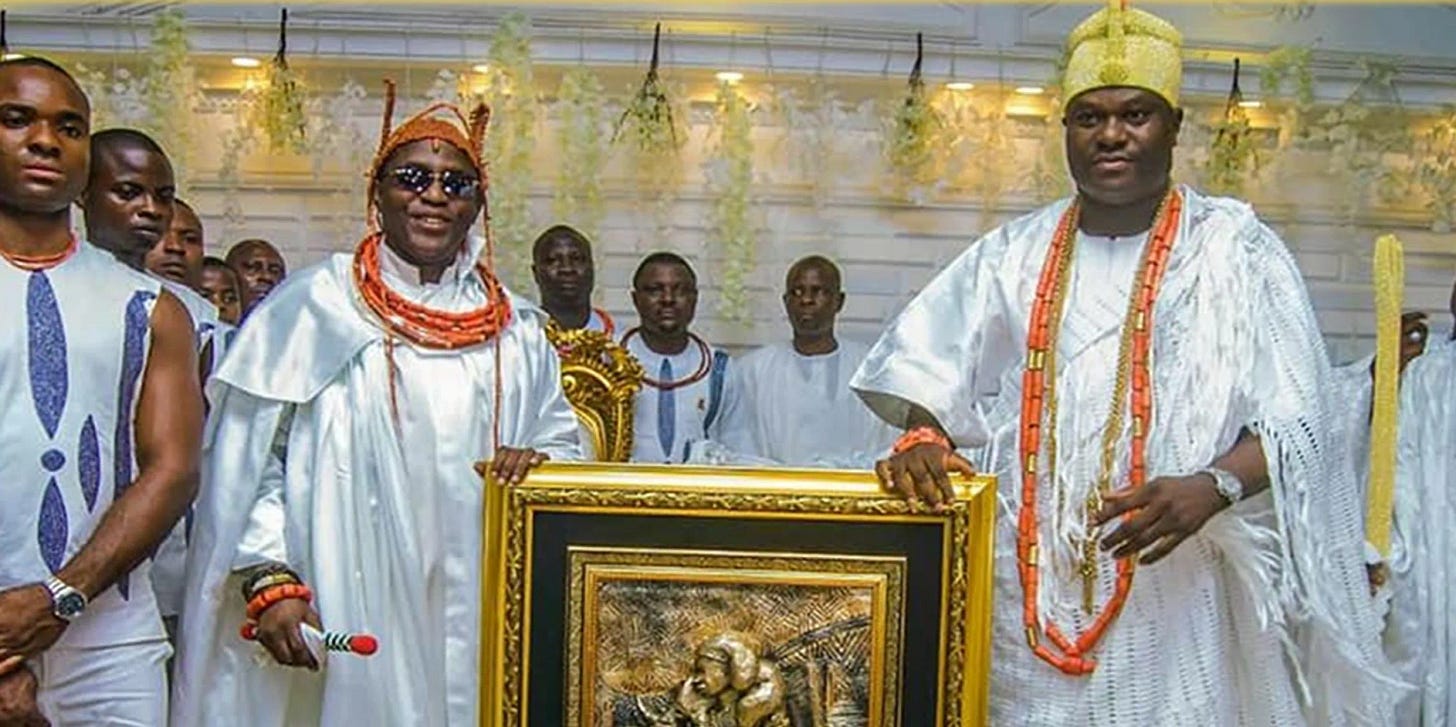Can traditional institutions contribute to democracy in Africa?
Customary structures have a role to play in the governance of modern African societies. The question is what that role is.

For World Politics Review, I wrote about Africa’s customary governance structures and the role they play in contemporary societies at a time when popular faith in conventional democratic norms and practices is waning across the continent. Here’s an excerpt:
… While citizens across Africa continue to demonstrate a strong commitment to democratic ideals and practices, there is widespread disenchantment with the performance of state institutions like the judiciary, civil service, legislature and security services, which large majorities associate with corruption, incompetence and impunity.
For some, this is a feature of modern African states and not a bug. According to this argument, because they inherited structures created by European colonizers for the purpose of extraction, exploitation and repression, modern African nation-states cannot deliver the social goods that Africans desire. And Western-imposed norms like multiparty elections will do little to enable democratic institutions to deliver vital public services if crucial elements like state formation and an inclusive social compact that defines the relationship between citizen and state are missing from the equation.
These arguments rose to prominence in the 1990s, when the “African solutions to African problems” mantra gained currency in the wake of the deadly conflicts and economic hardship that coincided with the continent’s democratization wave. It has become routine in some quarters to hear calls for democracy to be “Africanized” or “adapted to African contexts,” among other variations. These terms have a wide variety of meanings depending on the context and who uses them, but broadly speaking they can be seen as a critique of norms and institutions that reflect Western ideals, while circumventing the history and traditions of African societies.
The article builds on power struggles involving two historical West African traditional leaders — the Emir of Kano and the Asante Empire’s Asantehene — and a new report by Afrobarometer about trends in public opinion about the state of democracy to examine longstanding debates about the “how” in democratic governance across the continent. Many arguments exist for and against democracy as practiced in African nations, including the notion that democracy is “unsuitable” for Africa. Leaving aside that “democracy” often means many different things to many people, the notion of its unsuitability to African societies is ahistorical and plainly wrong. However, the arguments with which some who make that case support their position aren’t totally off-base and merit consideration. Relatedly, many Africans advocate for customary leaders to be “recognized” by African nation-states and for them to be given an expanded role in contemporary governance. But to a large extent, many countries do in fact “recognize” traditional leaders and give them some role to play.
To my mind, the significant question isn’t so much about whether to recognize traditional institutions or not, but how to define their role in contemporary African societies and ensure that they form part of a lasting social contract between authority and constituent.
You can read the article here.





Democracy means that governance is by consent of the governed. The governed might not all be part of the customary structure involved. There are the factors of tribalism, gender, economic station and section of the area governed. Customary structures may cover a limited area and haven't always been beneficial to all members of society. If the people have confidence in the traditional leaders their opinions should be considered. If a nation, city or village choses something other than a democratic form of government, such as a strongman or traditional leader the result may not be governance.